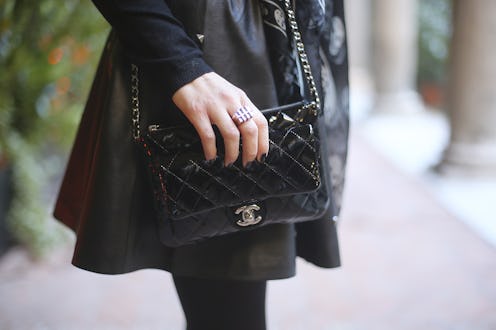Fashion
Want a Chanel Bag? Keep Dreaming!
If you've been saving your hard-earned cash for a quilted Chanel purse, keep dreaming. According to the Wall Street Journal, the prices of luxury goods are continuing to soar with no sign of slowing down anytime soon. So much so, in fact, that even the wealthiest consumers are reaching their spending thresholds.
This means that certain highly covetable items are more out of reach than ever before, even for the well-to-do. An iconic quilted Chanel purse has risen a whopping 70 percent in just five years, and will now run you $4,900 (that's like, months and months of rent money for most of us). Other notable price increases include the Cartier Trinity gold bracelet, now retailing for $16,300 (48 percent pricier than in 2009) and Piaget's Altiplano watch, which now costs $19,000 compared to $6,000 in 2011.
If these figures terrify, that's because they are terrifying. Do you know how many groceries I could buy for $19,000? Hell, do you know how many designer shirts I could buy for $19,000? I could probably buy out an entire Anthropologie for about that much. But I wouldn't. Because groceries.
The reason behind the wild price increases? One economic theory speculates that "[a]t the high end of the market, a higher price can add to a product's allure." This is a dangerous theory on which to hinge sales growth, one that WSJ's article cautions against relying upon in this time of inflation. In fact, the strategy is already beginning to backfire as wealthy consumers cease to buy the items at all.
"Luxury brands are at risk of losing customers who cannot or do not want to pay more," Claudio D'Arpizio, a partner with consulting firm Bain & Co, told WSJ. Sale on luxury items grew 7 percent last year, down from the 11 percent annual rate the markets saw in 2010-2012. Even those who can afford these astronomical prices (read: the one percent) are shying away from doing so.
So maybe the wealthiest women in the world won't soon be joining us as we scour the sales racks at Urban Outfitters, but we can take some solace in the fact that even those with investment banker salaries are not as willing to fork over $5,000 for a Chanel purse in the wake of recession.
